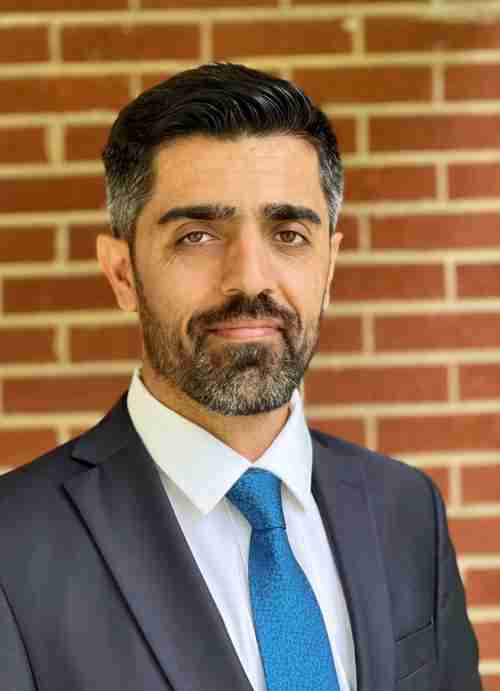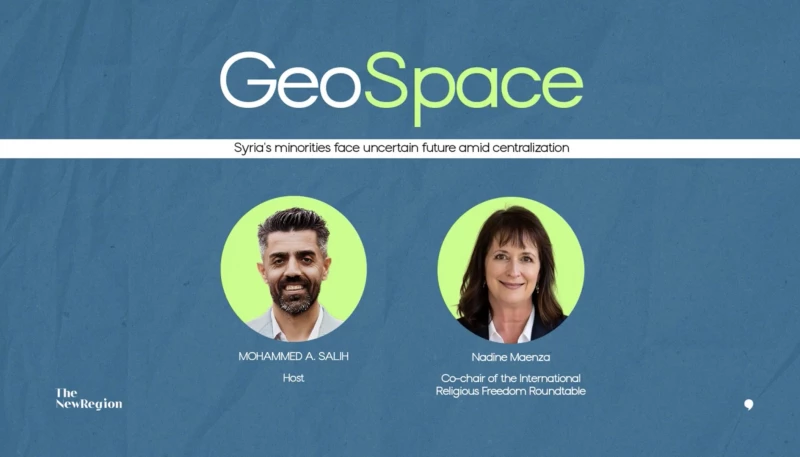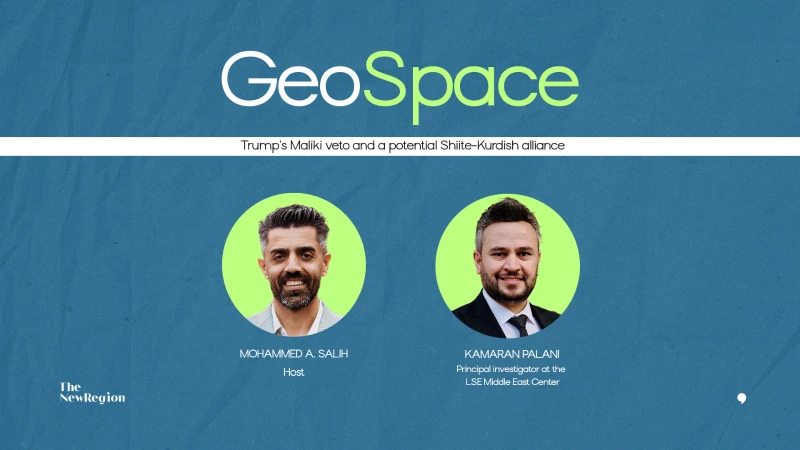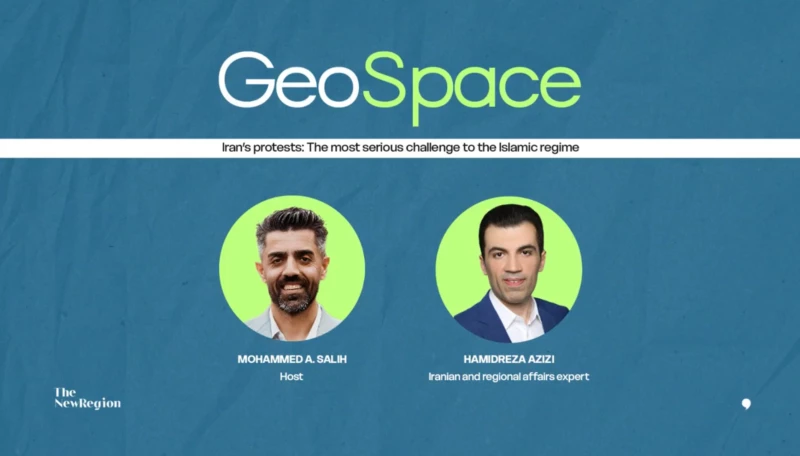ERBIL, Kurdistan Region — In the latest episode of The New Region’s Geospace podcast, host Mohammad A. Salih spoke with Hayder al-Shakeri, a research fellow with Chatham House’s Middle East and North Africa program, about Iraq’s November 11 parliamentary elections and what they could mean for the country’s political future.
Saleh noted the vote was held calmly and without major incidents, an outcome many observers welcomed given heightened regional tensions since October 7, 2023 and renewed US attention on Iraq.
Shakeri described the election process as well-organized and professionally administered. “For the past few election terms, we have been having, you know, very safe elections, and people were going to the votes.”
Turnout figures were also higher than in 2021, breaking a years-long downward trend. Shakeri said special voting played a major role, with some security force participation reaching 99 percent. “This tells you that many of these security entities have been encouraging their members to go to the polls,” he said, noting that some agencies are closely aligned with political parties.
Iraq’s relative stability over the past three years and the visible impact of reconstruction spending also helped increase participation, he added. “That, to a certain extent, encouraged people to go out there and vote,” he said.
Campaign spending also reached unprecedented levels. Shakeri said reports suggested this was Iraq’s most expensive election to date, with tens of millions of dollars spent nationwide. “Either candidates or votes from constituents” were reportedly purchased, he noted, adding that videos on social media showed candidates distributing cash and gifts.
Salih asked whether issues, party networks, or sectarian loyalties were pulling voters to the ballot box. Shakeri said the answer was a mix of all three. Iraq’s eight million public payroll beneficiaries formed a dependable base of mobilized voters, many encouraged or pressured to participate. He also pointed to the return of sectarian messaging among some political actors. “The political elite have been pushing their constituents, their followers, to go out and vote, to reclaim certain cities, or to push the narrative of the other sect,” he said.
While Shakeri stressed that many Iraqis were not receptive to such rhetoric, he noted that some segments still responded to appeals blended with material incentives.
The pair also discussed the notable achievements of incumbent premier Mohammed Shia' al-Sudani's Reconstruction and Development Alliance and the Kurdistan Democratic Party (KDP), the latter of which became the first Kurdish party to surpass one million votes.
The geopolitical implications of the results were also delved into with an emphasis on the ongoing struggle between the US and Iran to maintain influence in the Iraqi political sphere, with Shakeri asserting that Sudani could be perceived as a relatively neutral candidate as he has "opened up some doors with the US" while also not taking actions "detrimental to Iranian interests in Iraq."
More of the discussion will be available on the full podcast episode, published on The New Region’s website, YouTube, and SoundCloud.


 Facebook
Facebook
 LinkedIn
LinkedIn
 Telegram
Telegram
 X
X


